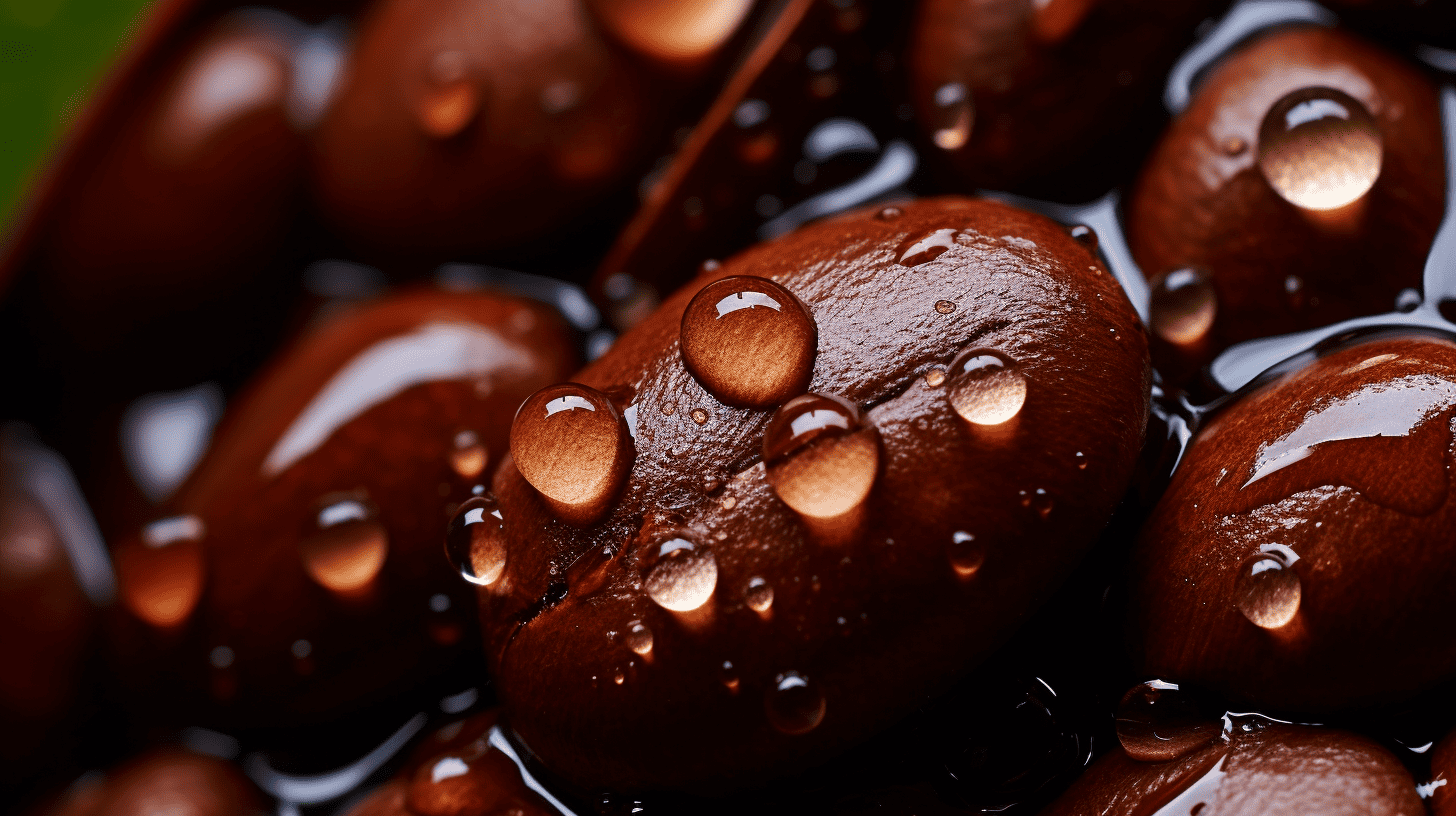Coffee culture and lifestyle are woven deep into our daily lives, from morning rituals to social gatherings and workplace breaks. As we sip on this aromatic beverage, we often overlook its rich history and how it’s helped shape civilizations across the globe.
Every cup has a unique story, with varying traditions around coffee consumption and a diverse range of flavors derived from different bean origins. In this blog post, let’s delve into the fascinating world of coffee culture and lifestyle as we explore its impact on human experience throughout time and across cultures.
Key Takeaways
- Coffee culture has a rich history, dating back to ancient Ethiopia and eventually spreading across the globe. It has taken on varying traditions and flavors depending on the culture and region.
- Coffee shops have become “third places” where people can gather to socialize and work. These communal spaces are essential for mental health as they foster personal connections that increase happiness.
- Drinking coffee can boost cognitive function and energy levels, potentially reducing the risk of certain diseases such as type 2 diabetes and Parkinson’s disease. However, excessive consumption may lead to adverse effects such as anxiety, sleep disturbances, and cardiovascular issues. Moderation is vital to enjoying this beloved beverage in our daily lives.
The History And Significance Of Coffee Culture
Coffee has been a part of human civilization for centuries, with its origins in Ethiopia and eventually spreading to the Arab world before reaching Europe and beyond.
Origins Of Coffee Drinking
Legend has it that the origin of coffee drinking goes back to ancient Ethiopia, where a goat herder named Kaldi discovered its energizing effects. After consuming the berries from coffee plants, he noticed his goats were more lively and decided to try them himself.
As word spread about these magical beans, coffee made its way across various civilizations over time. Travelers and traders brought the beverage to nearby regions like Yemen and eventually reached other parts of Arabia, Africa, Europe, and Asia.
From there on out, different methods of preparing and enjoying coffee emerged as it was integrated into numerous cultures around the world.
Emergence Of Coffeehouses In Europe
Coffeehouses in Europe played a central role in the emergence of coffee culture. The first European coffeehouse opened its doors in Venice, Italy, around 1683.
Coffee quickly became a popular beverage among Europeans, spreading rapidly across the continent.
These cafes provided an intellectual meeting place for people to discuss ideas and exchange knowledge. In many ways, they served as cultural hubs where artists, writers, and philosophers would come together to share their work freely amongst fellow patrons.
The popularity of these cafes exploded during the Enlightenment era when people saw it as a way to gather information about politics and society from newspapers while enjoying lovely refreshments like cakes and pastries alongside excellent cups of coffee with friends or acquaintances at no extra cost beyond what was consumed directly by each customer themselves!
Coffee’s Impact On American Society
In the United States, coffee has become ubiquitous in everyday life. From grabbing a cup on the way to work to meet friends at a local café, it’s hard to imagine American culture without coffee.
Coffeehouses have played an integral role in American society, dating back to pre-revolutionary times when they were used as gathering places for political debate and discussion.
The Boston Tea Party was planned in a coffeehouse! Nowadays, coffee shops serve as community hubs where people come together to socialize and work.
Coffee has also had significant economic impacts on America. The rise of specialty coffee roasters and shops has introduced new job opportunities throughout the supply chain – from farmers in developing countries who grow the beans to baristas who craft artful latte designs.
Additionally, companies like Dunkin’ Donuts have become synonymous with American culture and have expanded internationally through franchising agreements.
The Role Of Coffee In Our Daily Lives
Coffee plays a significant role in our daily lives, with many people starting their day with a cup of coffee as part of their morning ritual.
Morning Routines And Coffee Culture
For many people, coffee is an essential part of their morning routine. It’s the first thing they reach for when they wake up, setting the tone for their day. Coffee culture has become so entrenched in modern society that people often plan their morning schedules around it.
The sound of a coffee machine grinding beans or the aroma of fresh-brewed coffee can have a calming effect on even the most hectic mornings.
Studies have shown that caffeine consumption improves cognitive function and energy levels, making it an ideal start to a productive day. But beyond its functional benefits, there’s also a social aspect to enjoying coffee in the morning.
Many people relish sitting down with family members or friends over breakfast and discussing plans for the day while sharing some quality brews.
Socializing And Coffee Shops
I love visiting coffee shops because they provide the perfect setting for socializing. Whether catching up with a friend, meeting a colleague for business discussions, or going on a date, coffee shops offer a relaxed and comfortable atmosphere that encourages conversation.
Coffee shop culture has become an integral part of our daily lives. We see individuals working on their laptops while sipping their favorite brew, groups discussing politics, writers penning down their next novel, and book clubs gathering to discuss literature.
Coffee shops are now considered ‘third places’ – spaces outside of home or work- where people can unite and form communities based on similar interests.
[Keywords: Lifestyle, Urban lifestyle, Social norms, Third places]
Coffee Breaks In The Workplace
As someone who has worked in various office settings, I know firsthand the importance of a good coffee break. It’s become a ritual among colleagues to gather around the communal coffee pot and catch up on the latest news while sipping our favorite brews.
Studies have shown that brief mental breaks can help us perform better at work by reducing stress and improving overall mood. And what better way to take a break than with a warm cup of coffee? These moments are often great opportunities for employees to connect outside their regular work duties, building bonds that can contribute to a more positive workplace culture.
Health Benefits And Risks Of Coffee Consumption
Drinking coffee can boost cognitive function and energy levels while potentially reducing the risk of certain diseases such as type 2 diabetes and Parkinson’s disease; however, excessive consumption may lead to adverse effects such as anxiety, sleep disturbances, and cardiovascular issues.
Boosting Cognitive Function And Energy
For many of us, a morning cup of coffee is a non-negotiable part of our daily routine. And it’s not just about the taste or comfort factor – there are real benefits to consuming caffeine in moderation.
Coffee has been shown to boost cognitive function and energy levels, making it an ideal beverage for those who need an extra jolt to kickstart their day.
The caffeine content stimulates your central nervous system, promoting wakefulness and improved focus.
But as with any good thing, moderation is key. Too much caffeine can lead to negative side effects such as anxiety, jitteriness, and disrupted sleep patterns.
It’s essential to be mindful of how much coffee you’re drinking and when – consuming caffeine too close to bedtime could interfere with a restful night’s sleep.
Potential Health Benefits And Risks
As a coffee lover, I am always interested in my favorite beverage’s potential health benefits and risks. Here are some critical facts to consider:
- Boosting cognitive function and energy: Coffee contains caffeine which can increase alertness, attention, and concentration. It can also improve physical performance by stimulating the nervous system.
- Potential health benefits: Studies have shown that moderate consumption of coffee may lower the risk of various diseases such as type 2 diabetes, liver disease, Parkinson’s disease, and colorectal cancer.
- Risks of excessive consumption: Excessive coffee consumption can cause negative side effects such as anxiety, restlessness, insomnia, rapid heart rate, and digestive issues. Pregnant women should limit their caffeine intake to avoid potential harm to developing fetuses.
- Harmful effects on some individuals: People with certain medical conditions, such as acid reflux or high blood pressure, may experience worsened symptoms when consuming coffee. Additionally, some individuals may have a genetic sensitivity to caffeine which can lead to adverse reactions.
Coffee can be a healthy part of a balanced diet when consumed in moderation. However, it is vital for individuals to be aware of their tolerance and any underlying health conditions that their caffeine intake could impact.
Harmful Effects Of Excessive Consumption
As much as we love our daily caffeine fix, excessive coffee consumption can harm our health. Consuming more than 400 mg of caffeine daily (equivalent to about four cups of coffee) can cause anxiety, restlessness, and increased heart rate.
But it’s not just the caffeine content that poses risks – drinking large amounts of unfiltered coffee (such as French press or Turkish coffee) has been found to increase cholesterol levels due to diterpene compounds in the beverage.
While moderate coffee consumption is generally safe for most people, it’s essential to be mindful of your personal tolerance level and limit your intake if you experience any adverse side effects.
Evolving Trends In Coffee Culture And Lifestyle
Specialty coffee and artisanal brewing methods are becoming increasingly popular, with a growing emphasis on sustainability and ethical production practices.
Sustainable And Ethical Coffee Production
As coffee consumption continues to soar, consumers and producers are becoming increasingly aware of the impact of their choices on the environment and communities. Sustainable and ethical coffee production aims to minimize environmental harm while ensuring fair treatment of farmers and workers in the supply chain.
Ethical coffee companies prioritize relationships with growers who adhere to those principles. For example, some roasters have formed cooperatives with farmers that pay them above-market prices for beans grown under environmentally sound conditions.
The goal is better flavor and respect for the land where beans came from by paying a premium price often called “green premiums.” These efforts empower small-scale farmers who would otherwise struggle against large agro-industrial companies for business opportunities.
Rise Of Specialty Coffee And Artisanal Brewing Methods
As the coffee culture grows, so does the demand for specialty and artisanal brewing methods. This trend has given rise to a new category of coffee enthusiasts who seek unique taste experiences beyond traditional drip coffee.
Artisanal brewing methods such as pour-over, cold brew, and French press have also become increasingly popular due to their ability to unlock different flavor profiles from the same beans.
These methods require attention to detail and precision, making them almost like art.
Overall, the rise of specialty coffee and artisanal brewing is not just about the taste but also emphasizes transparency in sourcing practices, ethical labor standards, and sustainable farming practices – all factors that align with modern consumer values.
Technological Advancements In Coffee Brewing And Delivery
As technology advances, so does how we brew and enjoy our coffee. From automatic espresso machines to single-serve pod systems, numerous innovations have changed the coffee brewing game for good.
One prime example of innovation in coffee delivery is the rise of mobile ordering apps that allow us to order our favorite cup of joe from anywhere with just a few taps on our smartphones.
Introducing new technologies has enabled baristas and enthusiasts to experiment with more advanced brewing methods like pour-over techniques or nitrogen-infused cold brews.
These methods elevate the taste profile and give drinkers an experience. In recent years, we’ve seen an increasing interest in smart home devices such as WiFi-enabled brewers and grinders, which allows consumers to customize their perfect cup right at home via voice control or smartphone app integration.
Coffee As A Symbol: The Influence Of Coffee In Society
Coffee has played a significant role as a symbol of hospitality and social gatherings in many cultures worldwide, influencing consumer behavior, political symbolism, and anthropological studies.
The Cultural Significance Of Coffee In Different Regions Of The World
As a coffee lover, I’m always fascinated by how coffee is perceived and consumed worldwide differently. From the elaborate Turkish coffee ceremonies to the casual American drip coffee, there’s no doubt that coffee culture varies significantly from one region to another.
In Ethiopia, where coffee originates from, it’s more than just a beverage; it’s a cultural identity and social institution that brings people together in traditional ceremonies called “buna”.
Similarly, Middle Eastern countries like Turkey and Lebanon have unique ways of brewing and serving coffee as part of hospitality traditions.
In some parts of Asia like Japan and Korea, there is growing popularity for cold-brewed specialty coffees served in aesthetically pleasing sets among younger generations who value both taste quality and millennial lifestyles.
Our own lives are so much shaped by what we drink regularly making these cultural differences fascinating.
The Role Of Coffee In Hospitality And Social Gatherings
For many people, coffee is integral to hospitality and social gatherings. Whether serving guests freshly brewed coffee as they walk through your front door or meeting up with friends at a local café to catch up over espressos, coffee significantly brings people together.
Coffee shops have become popular gathering places for young adults seeking a casual atmosphere to hang out with friends or get work done outside of their homes or office. These shops provide comfortable seating areas, free Wi-Fi, and an array of specialty drinks that cater to individual tastes.
For many millennials living in urban areas with small and cramped apartments, cafés serve as “third places”—not quite work but not home—to connect with peers and build relationships over shared interests like good-quality coffee.
The Impact Of Coffee On The Economy And International Trade
Coffee is a significant commodity that has significantly impacted the global economy and international trade for centuries. It’s one of the most traded commodities in the world, with millions of people worldwide relying on coffee production for their livelihoods.
The coffee industry has also played an essential role in shaping international trade relationships between countries. Coffee-producing nations have often been subject to unfair trade practices and exploitation by powerful economies.
But today, many countries are taking steps to protect their coffee industries and promote fairer trading practices through organizations like Fairtrade International.
Conclusion: The Enduring Relationship Between Coffee And Our Daily Lives
In conclusion, coffee has a unique and enduring relationship with our daily lives. From its origins in Ethiopia to its global influence, coffee culture has been shaped by history, social norms, and consumer behavior.
The role of coffee spans from functional beverage to ceremonial tradition and can be found everywhere, from morning routines to workplace breaks. As we continue to evolve with the trends of sustainable production and artisanal brewing methods, it is clear that coffee will remain a significant symbol of hospitality, productivity, and socialization.
FAQs on Coffee Culture and Lifestyle:
1. How does coffee drinking influence our daily lives?
Coffee is a significant part of many people’s daily routines, serving as a morning pick-me-up, social activity, and even a way to relax during breaks or after work. Caffeine can provide an energy boost that helps us stay focused on tasks throughout the day.
2. What popular ways to enjoy coffee in different cultures worldwide?
Coffee culture varies significantly from region to region, with countries like Italy emphasizing espresso drinks while others, such as Japan, focus heavily on pour-over brewing methods and artisanal roasts.
3. Are there any health benefits associated with drinking coffee regularly?
Studies have found that moderate coffee consumption may be linked to lower risks of illnesses such as diabetes and liver disease due to its high levels of antioxidants.
4. How can businesses leverage the popularity of coffee culture to attract customers?
Brands can take advantage of consumers’ love for caffeine by incorporating trendy new flavors into their product selection or offering promotions through social media platforms like Instagram, which feature influencers sporting unique cup designs or incorporating catchy thematic hashtags promoting vibrant café settings where visitors enjoy delicious drinks amidst cozy indoor spaces & outdoor areas alike – all geared towards creating atmosphere conducive conversation among peers over relaxing sips!





Leave a Reply